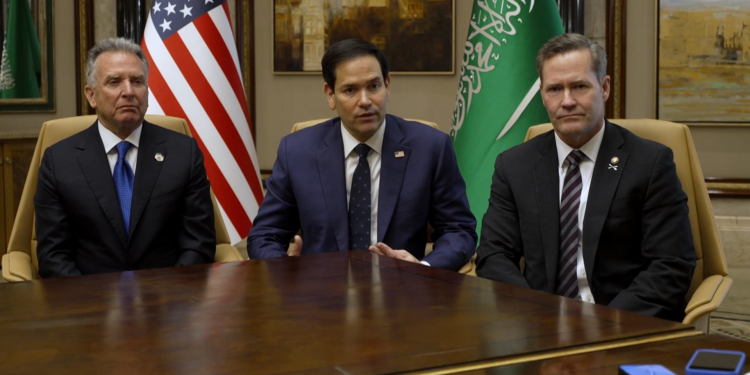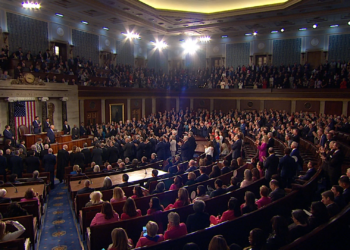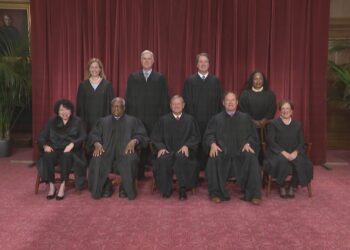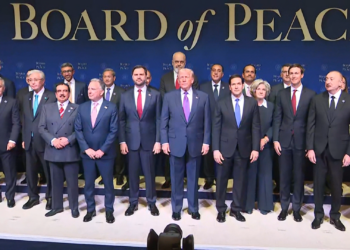By Brendan Scanland
WASHINGTON, D.C. — Roughly one week after a 90-minute phone call between President Donald Trump and Russia’s President Vladimir Putin, officials from the U.S. and Russia have met face-to-face for the first time in years.
It was the first in-person meeting between top U.S. and Russian officials since Moscow invaded Ukraine in February 2022. Three years after the invasion, the U.S. has come face to face with its adversary.
“We have to understand that it’s been three and a half years since there’s been any sort of regularized contact between the United States and Russia,” said Secretary of State Marco Rubio.
In a complete reversal of the policy under the Biden administration, on Tuesday, Secretary of State Marco Rubio, National Security Adviser Mike Waltz and U.S. Middle East Envoy Steve Witkoff, opened a channel of communication with Russia. Among the several topics discussed, was an end to the deadly conflict with Ukraine.
“The goal is to bring an end to this conflict in a way that’s fair, enduring, sustainable and acceptable to all parties involved,” said Rubio. “The work remains. Today is the first step of a long and difficult journey.”
Rubio said the U.S. and Russia agreed to restore their respective missions in Washington and Moscow, and that the U.S. will create a high-level team to oversee a path to peace.
“Month after month after month, in the killing fields of eastern and southern Ukraine is unacceptable. It is not in the interest of either country,” said National Security Adviser Mike Waltz. “This needs to be a permanent end to the war and not a temporary end as we’ve seen in the past.”
Officials say concessions by both sides may be inevitable to resolve the conflict.
“There is going to be some discussion of territory and there’s going to be discussion of security guarantees. Those are just fundamental basics that will undergird and underlie any type of discussion.” said Waltz.
Ukraine may have to cede control of parts of its territory taken by Russia over the past three years while also giving up any ambitions to join NATO.
“I don’t think cede is the right word here. I think a settlement will leave Russia in control of that part of Ukraine that it has seized through military means,” said Thomas Graham, a Distinguished Fellow at the Council on Foreign Relations, a nonpartisan, independent organization.
As for NATO membership, Graham believes it’s a bridge too far for Ukraine at this point in time.
“Ukraine occupies a very important place in Russia’s geopolitical imagination. President Putin believes that it is an integral part of the Russian state, the way he thinks about it, and they would almost certainly be tempted to test NATO’s commitment to the defense of Ukraine, if Ukraine were brought into NATO,” said Graham.
Ukraine was not a part of the talks between the U.S. and Russia on Tuesday and there is growing concern among Ukraine and European leaders, who say peace talks should not happen without Ukraine and its European allies at the table.
However, Graham believes any level of discussion is better than none at all.
“There’s a, I think, a misconception in much of the United States that diplomacy is something that you only do with your friends,” said Graham. “In fact, diplomacy is even more needed when you’re dealing with a with a rival.”
“The position of the Trump administration is, one, that the world is a much more dangerous place when the world’s two leading nuclear powers have no substantive contact for dialog between them. Two, that if your goal is in fact to end the carnage in Ukraine, to bring this to some sort of settlement, that you can’t do that without talking to the Russians,” said Graham.
Graham says a major challenge for the U.S. and Russia will be finding a way to responsibly manage geopolitical differences going forward.
“So that we reduce to a minimum, the risk of a direct military confrontation between our two countries, almost certainly escalate to the nuclear level, which would be catastrophic for the United States. It would be catastrophic for Russia, and most likely to be catastrophic for the rest of the world,” said Graham.










